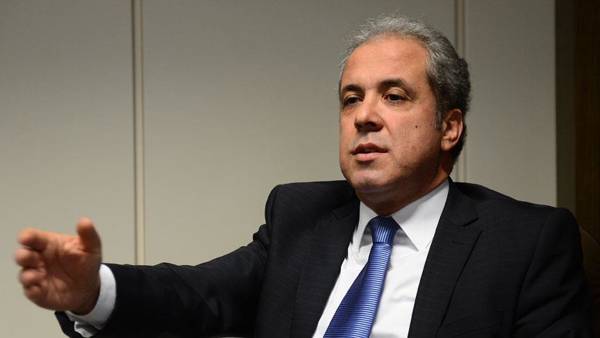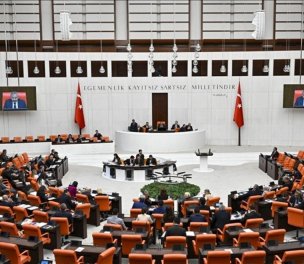In an effort to bolster tax revenue and combat tax evasion, Turkey's ruling Justice and Development Party (AKP) has introduced a comprehensive bill proposing amendments to the tax laws.
The 53-article bill, which is currently under parliamentary consideration, outlines a series of measures designed to tighten tax regulations and introduce new penalties for non-compliance. Head of the AKP's parliamentary group, Abdullah Güler, announced the content of the new bill at a press conference today.
The government plans to establish new tax security institutions but the bill does not include a domestic increase in the standard corporate income tax rate of 25%. However, the government will introduce a 15% minimum corporate tax on the income that global companies generate in Turkey.

Former AKP deputy criticizes sweeping tax reform
Güler explained that the proposal includes increasing the short-term premium rate from 2% to 2.25%. Additionally, projects operating under the build-operate-transfer model will now be subject to a 30% corporate tax on their earnings.
Güler further detailed, "By amending the corporate tax law, the exemption granted to funds and partnerships investing in real estate, including those considered commercial properties, will now be contingent on distributing 50% of the income generated from these assets as dividends to shareholders within the period specified in the article."
He emphasized that measures are being introduced to ensure tax security by enabling deductions for income and corporate taxes. The AKP official also declared the removal of the 5-point support premium paid by employers for retired employees.
For occupational groups such as doctors and lawyers, taxpayers with a revenue discrepancy of 20% or more compared to their declared income will be required to provide an explanation.
On Sunday, Finance Minister Mehmet Şimşek announced that individuals whose monthly expenses exceed 5 million lira but do not declare their income are now subject to audits.
To deter unregistered employment, the bill proposes a substantial increase in penalties. Fines for operating without the knowledge of the tax office will be tripled, and other violations will incur penalties up to 4.5 times the current rate.
Additionally, the use of another person's IBAN and POS devices by businesses will attract increased penalties. If Value Added Tax (VAT) deductions are not claimed within five years, they will be forfeited and treated as an expense.
These new measures come against the backdrop of broader government policies to increase tax revenues. Appointed after the 2023 elections, Finance Minister Mehmet Şimşek has led a shift in the country's economic policies toward a more orthodox approach. Since then, the government has introduced several new taxes and increased existing taxes and fees.
Other changes
One of the notable changes is the increase in the exit tax for citizens traveling abroad, which is set to rise to 500 liras, increasing from 150 liras. This tax will be subject to an annual adjustment based on revaluation rates (1 US dollar = 33.09 Turkish liras).
The bill also seeks to end the 5% Treasury support for individuals retiring under the "retirement age adjustment," commonly referred to as EYT (Emeklilikte Yaşa Takılanlar) in the country. This support will no longer be available to those who choose to continue working at the same employer post-retirement.
In a move to adjust corporate and income tax rates, the short-term premium rate will see a slight increase from 2% to 2.25% (VK)














